Gimme Some Truth: John Lennon’s Political Rebirth
Penning songs such as ‘Gimme Some Truth,’ John Lennon radicalized his music and became one of the most politically engaged musicians in history.
![Photo by Bob Fries Copyright Yoko Ono 2 web optimised 1000 [03]](https://www.udiscovermusic.com/wp-content/uploads/2018/09/Photo-by-Bob-Fries-Copyright-Yoko-Ono-2-web-optimised-1000-03-1000x600.jpg)
Three years before writing his political anthem “Gimme Some Truth,” John Lennon had a stark warning for the public about politicians when he was interviewed at The National Theatre in 1968: “I think our society is run by insane people for insane objectives, and I think that’s what I sussed when I was 16 and 12, way down the line. But, I expressed it differently all through my life. It’s the same thing I’m expressing all the time, but now I can put it into that sentence that I think we’re being run by maniacs for maniacal ends. If anybody can put on paper what our government, and the American government and the Russian, Chinese, what they are actually trying to do and what they think they’re doing… I’d be very pleased to know what they think they’re doing, I think they’re all insane!”
Half a century later, Yoko Ono has no doubts over his relevance in the febrile 24/7 world of “fake news.” One of the key inspirations for his solo career, Ono says: “John was always talking about creating a global village so he’d probably have an ‘I told you so’ attitude to the internet age. Right now he’d be making artwork with computer programmes and communicating with the world in a much quicker way.”
“The template for all that followed”
The Lennon song that seems most apt for the so-called “post-truth” world we inhabit in the 21st Century is the acerbic “Gimme Some Truth,” from his 1971 album, Imagine. In this highly memorable song, he sings:
I’m sick and tired of hearing things
From uptight, short-sighted, narrow-minded hypocritics
All I want is the truth
Just gimme some truth
I’ve had enough of reading things
By neurotic, psychotic, pig-headed politicians
All I want is the truth
Just gimme some truth
There seems to be no shortage of “psychotic, pig-headed politicians” these days, and the song retains a cultural relevance for musicians. Numerous bands have covered “Gimme Some Truth,” from Generation X, in 1978, to the Dutch band Gems in 2018. Travis, Fatal Flowers and Jakob Dylan have all recorded studio versions of Lennon’s song, while Foo Fighters, Billy Idol and Drive-By Truckers perform the song live. Rock band Primal Scream have recorded the song and play it regularly at concerts, including one in 2003 where they updated Lennon’s original target, Richard Nixon (described as “Tricky Dicky” in Lennon’s lyrics), to criticize George W Bush.
The power and the message of Lennon’s polemical song was hugely influential for Bono, too. The lead singer of U2 said: “I remember listening to the Imagine album when I was 12. It changed the shape of my bedroom, it changed the shape of my head and it changed the shape of my life. It just widened the aperture so much it was as if I was seeing the world for the first time. I learnt off the lyrics to ‘Gimme Some Truth’ and that, in a way, was the template for all that followed.”
“He made people question themselves,” Biffy Clyro’s Simon Neil later reflected. “I think if he was alive today… he would find plenty to rebel against, because he always wanted music to give a voice to things and issues and I think, more and more these days, that’s pretty rare.”
The origins of “Gimme Some Truth” actually lay in Lennon’s time with The Beatles, during a period when the man who had written some of the most iconic love songs of modern times was reinventing himself. While touring with the group, he wanted to talk openly about the Vietnam War, but the band’s manager, Brian Epstein, said no. More and more, however, Lennon’s songs began to describe struggle.
When he returned to the lyrics of ‘Gimme Some Truth’ in 1971, at the height of the Vietnam War, the references were updated to include President Nixon. By then, of course, Lennon was already a heavily politicized figure and “Gimme Some Truth” became a protest song for anti-war campaigners.
“If everybody demanded peace, then there’d be peace”
Lennon had been looking for fresh inspiration for a while. His marriage to first wife, Cynthia, was falling apart and, at George Harrison’s suggestion, he had studied the Bhagavad Gita and The Tibetan Book Of The Dead, and went on The Beatles’ 1968 trip to Rishikesh, India, where the group studied Transcendental Meditation with Maharishi Mahesh Yogi. Ultimately, mysticism gave way to an interest in politics that was certainly encouraged by Lennon’s new girlfriend, Yoko Ono.
Ono encouraged him to use his songwriting talents for the causes of peace and justice. Together, they became particularly adroit at publicity. When their joint album, Unfinished Music No.1: Two Virgins, was released in November 1968, with a cover photograph of the pair naked, many record shops refused to stock the album, even though the record company sold it packaged in brown paper bags.
Lennon wed again in March 1969, and his marriage marked an escalation in his activism. Lennon and Ono famously spent their honeymoon protesting against the Vietnam War from their bed at the Amsterdam Hilton Hotel. That was followed by a similar protest in Canada. “You see, the only way to deal with critics is to go over their heads direct to the public,” said the singer. “That’s what we did with the bed-ins.”
Despite his own growing personal fortune, Lennon seemed unfulfilled by material success. “If everybody demanded peace instead of another television set, then there’d be peace,” he asserted.
Sitting in the bed in Room 1742 at the Queen Elizabeth Hotel, in Montreal, André Perry recorded the couple singing “Give Peace A Chance” on a four-track tape recorder rented from a local studio, with Timothy Leary and Petula Clark providing backing vocals. The song, released in July 1969, had an immediate impact. Pete Seeger led half a million Vietnam War protestors in a version of the song at the Moratorium March on Washington in November 1969.
Lennon was becoming increasingly vocal about championing the anti-war movement as well as Native and African-American rights, and feminism. In one audacious move, Lennon and Ono launched a global anti-war billboard campaign that included Rome, Athens, Paris, Berlin, London, and Hong Kong. In November 1969, Lennon returned his MBE to the Queen with a note that said: “Your Majesty, I am returning my MBE as a protest against Britain’s involvement in the Nigeria-Biafra thing, against our support of America in Vietnam and against ‘Cold Turkey’ slipping down the charts. With love. John Lennon of Bag.”
A rallying cry for peace
After his debut solo album, 1970’s John Lennon/Plastic Ono Band, which included the song “Working Class Hero” and whose sessions birthed the single “Power To The People,” Lennon turned his political views into music, with the masterpiece album Imagine.
The title track, a memorable plea for a better world, became a rallying cry for peace. “Imagine” would later take on a whole new momentum following Lennon’s murder in December 1980, when the song gave him a posthumous No.1.
Though the parent album was serious and polemical, Lennon never lost the humorous edge to his character. Even when recording the angry “Gimme Some Truth,” he stopped one take and joked: “Come on, I’m doing Eddie Cochran,” before imitating the pop star singing “Cut Across Shorty.”
Yet, as Arctic Monkeys’ frontman, Alex Turner, put it, Lennon reserved “all this menace and anger in his voice” for the final album take. “I’m attracted to that angry Lennon,” Turner later said, admitting, “though it’s another thing I haven’t figured out how to do yet!”
Lennon said his life in the wake of Imagine became increasingly crazy, “like being Alice in Wonderland.” This feeling would have been compounded when he became a target of the American government. Lennon was living in New York, where he co-wrote his seasonal political anthem, “Happy Xmas (War Is Over),” with Ono, and had become friends with the radicals Abbie Hoffman and Jerry Rubin.
His friendship with these outspoken critics of Nixon, and his anti-war songs, had infuriated J Edgar Hoover, who was in his 47th year as director of the FBI. Hoover and Nixon were acutely aware that the upcoming 1972 election was going to be the first in which 18-year-olds had the right to vote, and they were worried that Lennon could use his power as a celebrity to inspire young people into the political process.
Lennon become the target of FBI surveillance, and the Immigration And Naturalisation Service moved to try and deport him. That failed, and the campaign against Lennon became farcical, not least in a blunder over the picture the FBI issued to agents tracking him. John Weiner, author of Gimme Some Truth: The Politicisation Of John Lennon, said: “Lennon was certainly one of the most recognizable faces in the world in 1972 but the picture was a guy named David Peel, who was an East Village folk singer, a street singer, the busker type, who looked a little like Lennon. I mean he wore the wire-rimmed glasses and had Lennon’s style of long hair, of course, lots of other people did in 1972. David Peel had recorded on Apple Records. Maybe that’s how they got confused.”
The former Beatle had also anticipated some of the concerns that dominate the political discussion today: namely, how to expand voter registration. Lennon’s concert in Ann Arbor in December 1971, when he was joined onstage by Stevie Wonder, featured voting enrolment booths, and Lennon reportedly donated $75,000 donation to the Election Year Strategy Information Center, who were organizing voter-registration campaigns.
“All I want is the truth, now”
The mid-70s saw something of a change in direction for Lennon, and he began to move away from radicalism, though he never lost his commitment to politics. In 1978, he said: “The biggest mistake Yoko and I made in that period was allowing ourselves to become influenced by the male-macho ‘serious revolutionaries,’ and their insane ideas about killing people… we should have stuck to our own way of working for peace: bed-ins, billboards, etc.”
As Carlos Santana put it: “John Lennon was correct. We utilize the music to bring down the walls of Berlin, to bring up the force of compassion and forgiveness and kindness between Palestines, Hebrews. Bring down the walls here in San Diego, Tijuana, Cuba.”
We’ll never know what the man once targeted by the FBI for being an undesirable alien would think of his recent commemoration on the “Forever” US postage stamp, but his risk-taking and bold campaigning undeniably left the world an image to live up to. While his National Theatre comments, in 1968, could just as easily describe today’s political backdrop, scenes of “schizophrenic, egocentric, paranoiac, prima donnas” continue to flood our TV screens and news feeds, as the decisions of the world’s leaders seem increasingly questionable.
As much as “Gimme Some Truth” takes aim at hypocrisy, however, it contains a simple message that echoes across the digital landscape of the 21st Century: “All I want is the truth, now… Just give me some truth.”


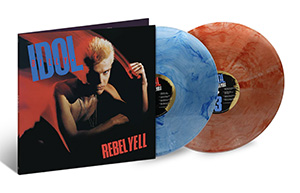
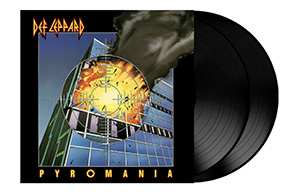
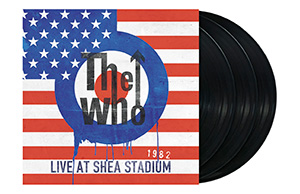



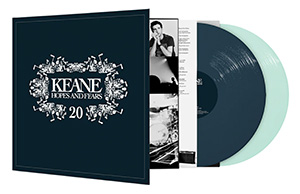
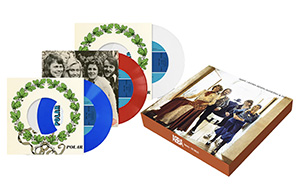
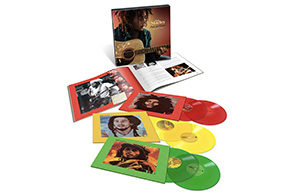
Mike Meade
September 15, 2018 at 12:45 am
Power to the People was not on John’s first album (maybe a later update as a bonus track) it wouldn’t have fitted in with those songs initially
uDiscover Music
November 26, 2018 at 11:18 am
Thanks for the correction, Mike. We’ve amended the piece and the author has been forced to listen to Gimme Some Truth on repeat until he learns what a real fact is.
Dino Perren
December 11, 2022 at 4:44 pm
what’s unique about “Gimme Some Truth” is that the music is as angry as the lyrics.